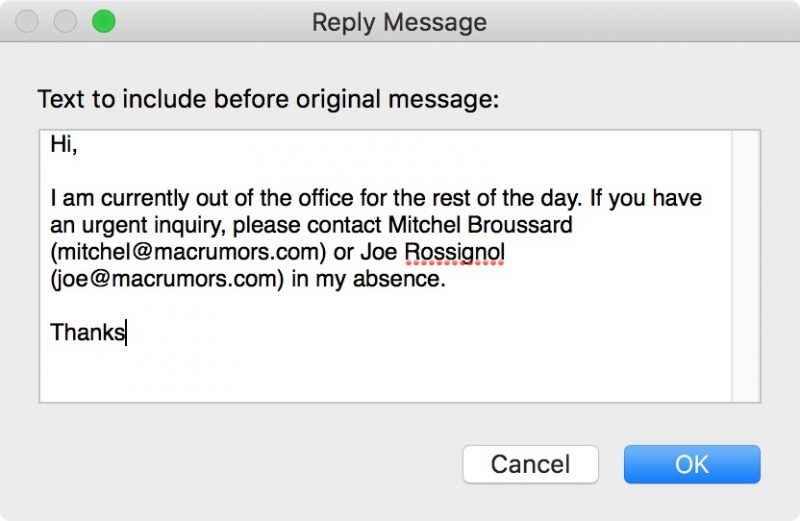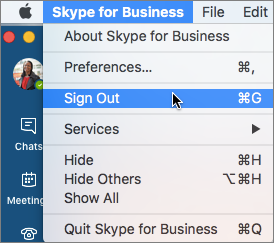

This value must be set to External to allow external OOFs. If the AllowedOFFType value for the Remote Domain is None, OOF messages do not fire externally. To do this, follow the steps in the following article:Ī user cannot create new rules in Outlook or Outlook Web Appīecause of the caching of quota information in the Information Store, the updated quota values may require up to two hours to take effect. To resolve this issue, follow these steps: Therefore, the internal and external OOF rules cannot be created. If an OOF reply is no longer returned, it is likely that the rules quota is exceeded. Set-MailboxAutoRepl圜onfiguration \ -AutoReplyState Disabled Set-MailboxAutoRepl圜onfiguration \ -AutoReplyState EnabledĬheck whether the OOF feature works as expected and the symptoms no longer occur. In the Delete Item dialog box, select Permanent delete passing DELETE_HARD_DELETE (unrecoverable) under Deletion style, and then select OK.ĭisable and then re-enable the OOF feature by using the following commands:



If the PR_OOF_STATE value is not the expected result, contact Microsoft Support to have them check for queued events (Exchange 2010 only).ĭo not delete any items except those are referenced. For example, if you disabled the OOF feature, consider the following screenshot: This value should be True if you enabled the OOF feature in Windows PowerShell or False if you disabled the OOF feature. Select the profile that you are accessing, and then scroll down in the bottom pane until you see the PR_OOF_STATE value. In the main window of MFCMapi, select Session, and then select Logon and Display Store Table to open the mailbox. Use MFCMapi to check the PR_OOF_STATE value. Set-MailboxAutoRepl圜onfiguration -AutoReplyState Disabled Set-MailboxAutoRepl圜onfiguration -AutoReplyState Enabled To do this, run either of the following cmdlets in Windows PowerShell, as appropriate: To resolve this issue, follow the steps for the specific cause. Download MFCMAPI from github (scroll down and then select Latest release). Using the Microsoft Exchange Server MAPI Editor (MFCMapi) may damage Microsoft Exchange Server and the Exchange server mailboxes.


 0 kommentar(er)
0 kommentar(er)
